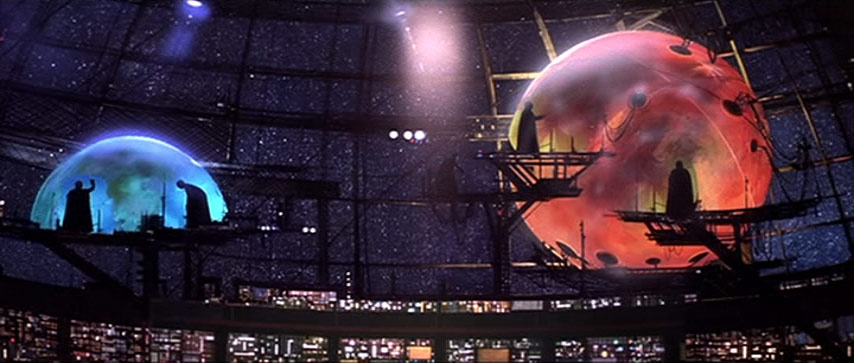
This movie came out in 1979. I saw it in the theaters but like a lot of stuff from the 1970s I was too young to wot of it. I grew up with my memory of this movie being deeply cheesy and mostly awful, but watching it again on a whim, I feel as though perhaps it’s time to re-evaluate it.
Let me make my point clear from the beginning; this is not a good movie. I am not a Black Hole apologist, because such a thing is medically impossible. Nor is it one of my guilty pleasures, like Krull. It’s OK if you like it uncritically, none of us are obligated to be critical all the time. But it’s certainly flawed and arguably a failure, if we had to grade movies on a pass/fail scale against the success of their storytelling.
Happily, we don’t have to do that! We’re free to notice all sorts of really interesting ideas in this movie, and perhaps detect a diamond in the rough, waiting to be polished in the 21st century.
The movie is old enough that I can’t presume you’ve seen it if you’re reading this. It’s from a period, the late ’70s, the early 80’s, when Disney knew it couldn’t keep making Herbie The Love Bug if it wanted to survive. So it bravely struck out and tried to do something different. Never Cry Wolf (which, really, you should see. You’d love it.), Tron, Something Wicked This Way Comes, this movie.
Alas, Disney couldn’t make it work. Not their fault. People just weren’t willing to accept darker, more serious, more experimental fare from Disney. John Riccetello, take note. And Disney was incapable of committing. With this movie, they added a ton of Disney stuff–funny talking robots–the movie didn’t need. In Tron they left the creators completely alone with the result that the plot, story, and dialog were a complete mess. Andrew Stanton, take note.
Plot

In The Black Hole a small, exploratory deep-space ship discovers a massive black hole. So big, it threatens to pull the ship into its grasp. As our heroes fight to claw their way out of the gravity well, they discover there’s a ship much nearer, impossibly nearer, dangerously close to the hole. The Cygnus. It sits near the eye of the storm unscathed and eventually the main characters are forced to land on the Cygnus, exploiting the zone of null-gravity around it.
The mystery ship is a gothic masterpiece, looking like nothing more than a giant cathedral hanging amongst the stars, the great maelstrom of the black hole framing it. Its master is the crazed hermit Dr. Hans Reinhardt. His entire ship apparently run by robots. He is the only human survivor of the Cygnus. Our heroes try to repair their ship and leave while at the same time unraveling the mystery of the robot-run ghost ship. All the while the diabolical Doctor Reinhardt plans to take his ship, and any aboard her, into the black hole. To discover the last, final mystery of the universe.
The Bad Bits
Make no mistake, I just deliberately tried to make the move sound interesting in my description. On paper, it’s a hell of a story. It suffered many blows, mostly its own fault, in execution. Though having the misfortune of being released during the same movie season as Alien meant there was no way The Black Hole could be taken seriously as a gothic space story. The Cygnus is impressive, but it pales in comparison to the Nostromo. Disney was famously betting the house on “20,000 Leagues Under The Sea in space” while Ridley Scott was quietly re-purposing the plot of And Then There Were None. Unfortunately Disney had nothing in their bag of tricks to compete with the twisted vision of H. R. Giger and the penis-headed vagina-beasts that sprung fully realized from the chest of John Hurt. I felt, however, as though there was enough good in here to warrant an exhumation.
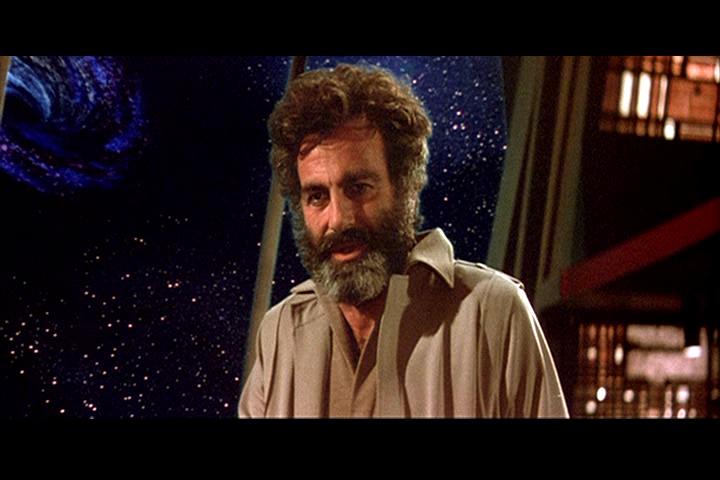
Focusing on the weak bits is easy. There are too many characters, Ernest Borgnine is a good example. An exploratory deep-space ship the size of an S.U.V. with a reporter on board? What? It only makes sense once you realize that the writers desperately needed someone to ask certain questions and deliver certain bits of exposition. A reporter is good for that, but the exposition is hamfisted. And Borgnine himself is miscast. He was a good actor, witness Marty, but he became a symbol for a certain kind of studio movie and in the late 70’s, that kind of movie was already obsolete. This is a very Sixties movie as is evidenced by the fact that it was the swan song of many old Hollywood special effects artists. The artists and the techniques they’d been using for thirty years. It would have looked dated even without Alien to compete with.
Dr. Kate McCray is another curio. She’s evidently present to give a more human element to the drama, although I’m not sure it was necessary. Her father was an original crewmember of the Cygnus and so naturally she wants to find out what happened to him. Apart from the coincidence (her dad was on the ship? Really?) it adds a level of motivation we don’t need. The robot crew is creepy enough. The mystery of what happened to the real crew is certainly a good motivation for anyone to start poking around. The Black Hole and Dr. Reinhardt are threats enough. We didn’t need McCray’s character. She and Borgnine’s reporter could probably have been combined into one character. Though if they were better cast, given something better to do, who knows? There is a moment where the reporter becomes a coward while Kate tries to talk Tony Perkins into leaving, both with plot-critical results I’m not sure how you’d achieve otherwise. Though I’d be willing to accept that challenge.
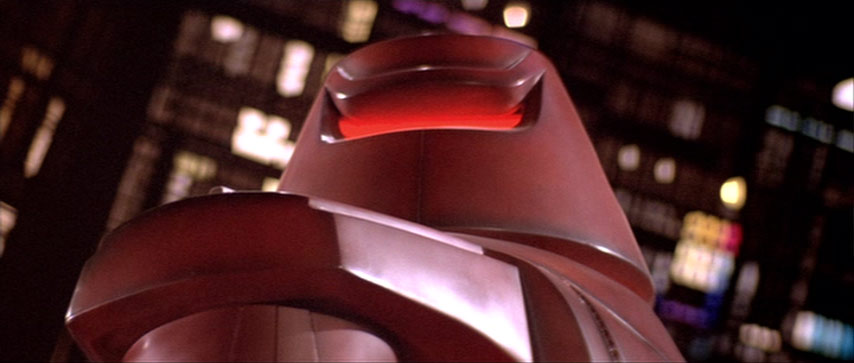
The interior lighting and set direction are far too pedestrian for their era. 10 years earlier, it would have been fantastic. But here, it’s almost lit like a TV soap opera. Amazing that it was released the same year as Alien and only three years before Blade Runner.
One final thing that’s always bugged me is that virtually the entire movie is looped. It’s all ADR. I think this always lent the film a possibly subconscious layer of unreality. Falsehood. It damages verisimilitude.
The good bits do not outweigh the bad. But that doesn’t mean there aren’t good bits.
The Good Bits
First, the character of Doctor Reinhardt is fantastic, played to the hilt by Maximilian Schell. But the movie shoots him as though you know who Schell is. Like it’s a big deal to have this actor in this role, which it is. But given that the target audience, kids, almost certainly have not seen Judgement at Neuremberg, they probably should have shot it differently.
The Cygnus , both the ship and her crew, are a character unto themselves. The first third of the movie knows the Cygnus is impressive and shows it off. Unfortunately, the interior sets are nowhere as impressive as the exteriors and so the second and third acts forget that they’ve got something special here. Most of the robots are ridiculous, but Maximilian (yeah, a robot with the same name as the actor playing the character who created him. Weird.) is an awesome evil robot. Maybe it’s a little weird to have EVIL ROBOT walking around your ship, I accept that. Why would you, stranded and alone, make your robot look like Robot Devil? I dunno, don’t ask. It’s cool. Shut up.
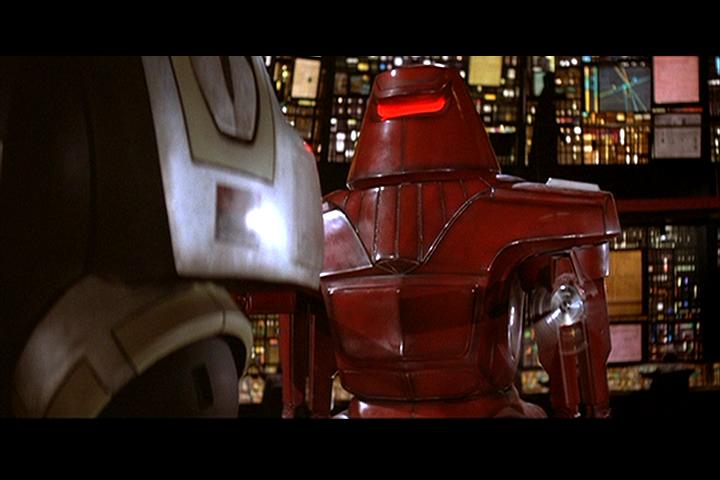
Reinhardt is obsessed with the question “what lies at the center of a Black Hole?” Great concept for a character. When I was a kid, years before I took a cosmology course in college, I wanted to know what was inside a black hole!
Unfortunately, there’s no answer that can be as compelling as that question. Possibly that’s OK. Sometimes the question is the point and you know you’re in it for the anticipation and buildup. The journey is the destination. The actual ending isn’t bad, I didn’t think. Heaven and hell evoked both metaphorically and literally. But it is challenging. The scene with the much-older Reinhardt, apparently having drifted in a void for decades, merging with Maximilian into one creature presiding over an undead army made up of the crew of the Cygnus in hell-world is at least fucked-up and possibly also stupid. The fact that I can’t tell if it works exactly means, at least on some level, it does work.
Anthony Perkins is entirely believable as a scientist who is so hungry for knowledge, he’s seduced by Dr. Faustus, er, Reinhardt into staying on board. The Captain, played by Robert Forster is interesting to me, now, as an adult. As a kid, Starship Captains were supposed to destroy computer-gods, freeing the native humans from their stagnant existence while fending off attacks from alien women in thigh-boots. The idea of a straight-laced, by the book captain who’s tough as nails sounds good to me these days. As a contrast, you understand.
The music is fantastic and I strongly recommend the soundtrack by John Barry, one of the best composers in film. The Black Hole itself looks impressive. Of course, today it would all be CGI and almost certainly better for it. But they succeeded in creating something that looked massive and malevolent.

VINCENT is certainly inspired by the droids in Star Wars. He’s R2-D2 and C-3PO combined; small and cute with little whirring noises, and an effete British voice. But one thing C-3PO didn’t have was Roddy McDowell voicing him, and the characterization, the wise, cynical, cautionary robot who quotes Cicero is unique. It’s a good character. If he and Maximilian (holy shit what a robot!) were the only robots in this movie, we’d think a lot more charitably of it. But the needless addition of Slim Pickens-bot and S.T.A.R.R., about whom the less said the better, bring things way down. The scene with VINCENT and STARR is a feeble attempt on the part of the writers to add drama and keep things cute at the same time, a hallmark of many of Disney’s live-action storytelling failures of the era.
The film, especially the introduction of the Cygnus successfully sets a gothic tone in space. Something that’s not easy to do, I reckon. This movie comes so close to being really dark. Watching Dr. Reinhardt set Maximilian on frappé and send him to juice Tony Perkins deeply fucked with me as a kid and still does. The fact that Perkins tries to defend himself using a book full of scientific notes as a shield was lost on me as a wee one. Watching Reinhardt crushed under the weight of his own monstrosity (the ship itself, not his robot) and gasp out “more light!” is impressive as hell. Who at Disney thought it was a good idea to have Maximilian Schell quoting Goethe in the same movie as a Slim Pickens-bot? It’s managerial insanity of the highest order.
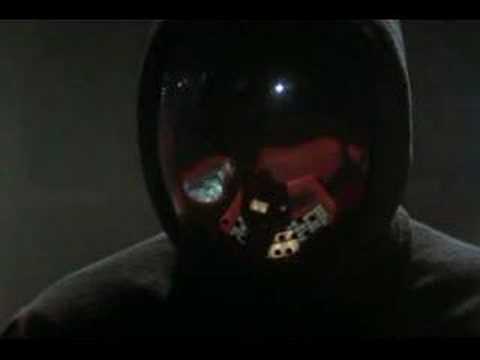
Finally, the central mystery of the Cygnus is pretty good. They probably didn’t have the budget to make the robot crew look like anything other than humans with robes on, and that seriously diminishes the impact of the final reveal. Indeed, as an 8 year-old, I’m not sure I ever understood they were supposed to be robots. But, like so much else here, on paper it’s a hell of an idea. Certainly ripe for exploiting as an adventure in a SF RPG. Or, dare I say it, a remake?
I hate to play the fan, but I can’t help think what a remake of this, with a better script, better effects, and Daniel Day-Lewis as Doctor Reinhardt, would be like. Of course, invoking Daniel Day-Lewis in this context is like saying “man I bet this wood would be worth a lot more if it was made of gold!”
It’s a fine line between clever and stupid.

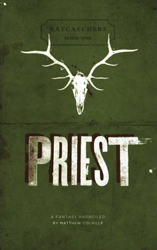 My first novel
My first novel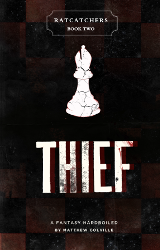 My new novel.
My new novel.